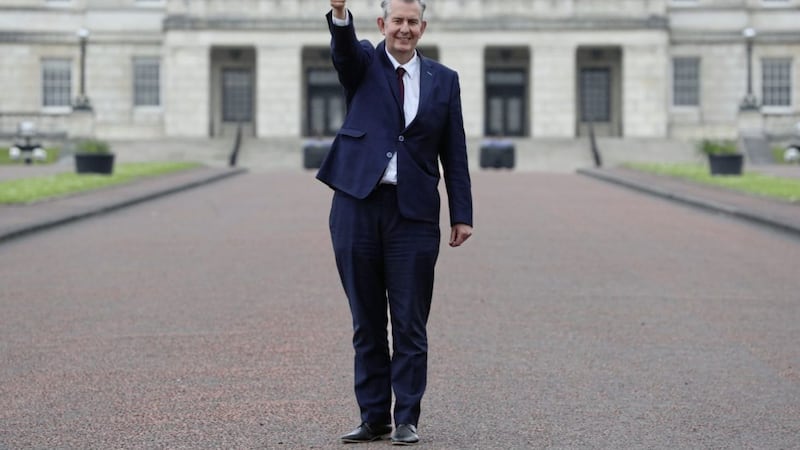In the end the DUP's first ever 'open' contest turned out to be a damp squib.
No set-piece debates or confrontations. No great hustings events. No hugely embarrassing public gaffes or forgotten-to-disconnect-the-microphone moments of unguarded truth.
Instead, two men spent two weeks in lengthy conversations with 34 MLAs and MPs, trying to persuade them they were the best leader to secure their seats at the next election. And when it came down to it, of course, that's what this contest was always about: because finding a way of saving their seats was the reason they had dumped Arlene Foster in the first place.
Will Edwin Poots turn out to be their saviour? Who knows. If the protocol is still in place at the time of the election - after months of protests and assorted boycotting of north-south institutions - unionist voters might not be so easily persuaded that backing the DUP again (as they have done since 2007) is worth it. But if he finds a way of pushing the protocol way down the agenda and assuaging unionist fears, then he will settle party nerves. But that's a huge task.
More important, the narrowness of the vote meant that Poots won with just over half the vote (52 per cent) and will face the similarly huge task of uniting the party. There have always been divisions, of course, but a lack of leadership contests, plus iron-fist discipline (which has been dissolving over the past year) meant the divisions were masked from the public. He will be given a honeymoon of sorts, but it will be short and he will be expected to take the party by the scruff of the neck and fix its very obvious problems.
He made a pitch for greater unionist cooperation and that's likely to be a key strategy over the next few months. The general view is that we are now in full-blown election mode so Poots will be keen to keep his unionist rivals under some sort of umbrella, if only to try and keep an eye on them. That could be a problem for the UUP, particularly if a new leader is keen to put distance between the two parties: because there is a significant section of the party (over 40 per cent according to a recent book by Professor Jon Tonge and others) which favours electoral alliances/pacts with the DUP.
The other challenge he faces is increasing pressure from the Orange Order, the Loyalist Communities Council and a younger section of loyalism, to ditch the assembly if the protocol isn't removed. My reading of him is that he doesn't support a 'crash and burn' approach, recognising that a form of direct rule would do no favours for unionism generally and the DUP particularly.
How will he get on with Sinn Féin? Personally he has long accepted that a business relationship is necessary for devolution to work and I think his instinct on that won't change. But with such a narrow win - and probably fearful how quickly briefings against him could start if he appeared too flexible - he may have to curb those instincts and nudge towards belligerence and stand-off. Which means his greatest challenge is to steer a difficult course between external pressure and internal expectations to secure his main priority - keeping devolution and the executive on the go.








